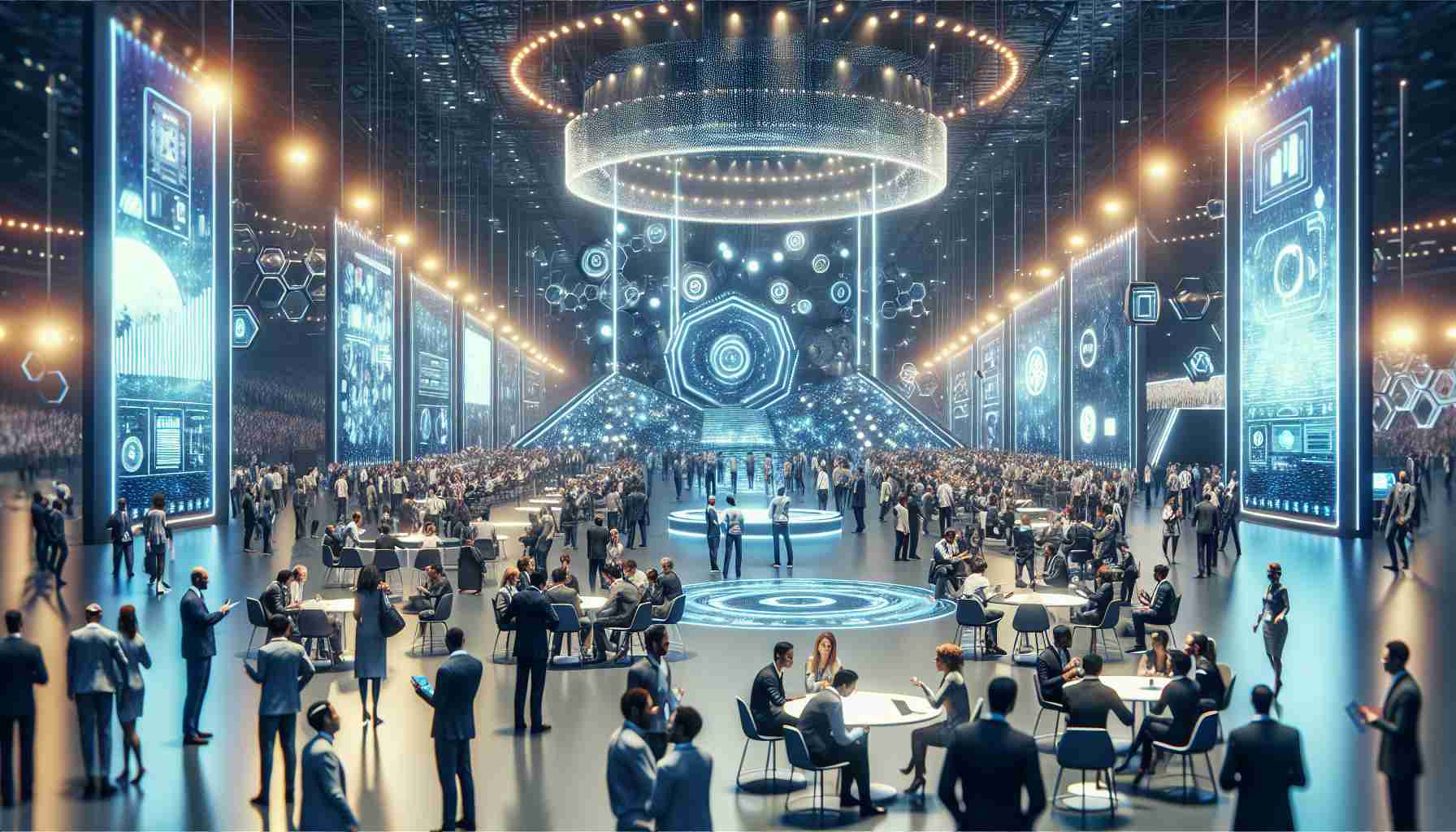In the ever-evolving world of technology, the Mobile World Congress (MWC) has always been a melting pot of innovation and excitement. This year’s MWC in Barcelona was no different, and among the many noteworthy events, Huawei Industrial Digital and Intelligent Transformation Summit stole the show with its emphasis on collaborative innovation.
Bringing together a diverse group of customers, partners, and thought leaders from around the world, the summit explored the theme of ‘Leading Digital and Intelligent Infrastructure, Accelerating Industrial Intelligence.’ The goal was to foster the exchange of revolutionary ideas and practices in the realm of digital and intelligent transformation, with a particular focus on industries and small- and medium-sized enterprises (SMEs).
Huawei made a splash by unveiling 10 industrial digital and intelligent transformation solutions, alongside a range of new flagship products. This marked a significant milestone in the company’s journey towards industrial evolution and highlighted their commitment to driving the intelligent world forward.
Li Peng, Corporate Senior Vice-President and President of ICT Sales & Service at Huawei, summed up the spirit of the age, stating that the key to foreseeing the future lies in our ability to create it. Huawei is determined to deliver more intelligent digital infrastructure products and solutions, pushing the boundaries of what’s possible and accelerating the intelligent transformation of industries.
Leo Chen, President of Enterprise Sales at Huawei, stressed the importance of managing data computing, transmission, and storage in a harmonized manner. By integrating data across different scenarios into a unified cloud data foundation, Huawei aims to extend its reach to more traditional industries and core businesses, supporting industry customers on their digitalization journey.
Huawei also recognizes the need for differentiated solutions across various scenarios, and they are committed to helping customers navigate through their digital and intelligent transformation phases. They have introduced 10 industrial digital and intelligent solutions for large-scale industrial customers, such as the National Cloud Solution 2.0 and Smart City. For SMEs, Huawei offers open, lightweight, and scenario-specific solutions that are cost-effective and serviceable.
The launch of the HUAWEI eKit brand in 2023 exemplified Huawei’s dedication to understanding and addressing the unique challenges and needs of each customer. They strive to deliver scenario-based, cutting-edge, green, and low-carbon products and solutions.
Huawei’s global partnership network has also played a vital role in driving customer success. With over 40,000 partners in the enterprise market, Huawei continues to optimize partner development policies and foster healthy and win-win partnerships.
At the heart of Huawei’s approach is a collaborative spirit that emphasizes shared benefits and integrity. As the journey of digital and intelligent transformation progresses, Huawei is poised to lead the way in unleashing the full potential of the intelligent world. The MWC was just the beginning.
FAQ:
1. What was the theme of Huawei Industrial Digital and Intelligent Transformation Summit at the Mobile World Congress (MWC) in Barcelona?
– The theme of the summit was ‘Leading Digital and Intelligent Infrastructure, Accelerating Industrial Intelligence.’
2. What did Huawei unveil at the summit?
– Huawei unveiled 10 industrial digital and intelligent transformation solutions, alongside a range of new flagship products.
3. What did Li Peng, Corporate Senior Vice-President and President of ICT Sales & Service at Huawei, say about the future?
– Li Peng stated that the key to foreseeing the future lies in our ability to create it. Huawei is determined to deliver more intelligent digital infrastructure products and solutions.
4. What is Huawei’s focus when it comes to managing data computing, transmission, and storage?
– Huawei aims to integrate data across different scenarios into a unified cloud data foundation, extending its reach to more traditional industries and core businesses.
5. What solutions has Huawei introduced for large-scale industrial customers?
– Huawei has introduced 10 industrial digital and intelligent solutions for large-scale industrial customers, such as the National Cloud Solution 2.0 and Smart City.
6. What kind of solutions does Huawei offer for small- and medium-sized enterprises (SMEs)?
– Huawei offers open, lightweight, and scenario-specific solutions that are cost-effective and serviceable for SMEs.
7. What is the purpose of the HUAWEI eKit brand launched by Huawei?
– The HUAWEI eKit brand exemplifies Huawei’s dedication to understanding and addressing the unique challenges and needs of each customer, delivering scenario-based, cutting-edge, green, and low-carbon products and solutions.
8. How does Huawei view its global partnership network?
– Huawei’s global partnership network plays a vital role in driving customer success, with over 40,000 partners in the enterprise market. Huawei continues to optimize partner development policies and foster healthy and win-win partnerships.
9. What is Huawei’s approach to digital and intelligent transformation?
– Huawei’s approach is collaborative, emphasizing shared benefits and integrity as they lead the way in unleashing the full potential of the intelligent world.
Key Terms/Jargon:
– Mobile World Congress (MWC): One of the largest and most influential trade shows in the telecommunications industry, showcasing the latest advancements in mobile technology.
– Industrial digital and intelligent transformation: The process of utilizing digital technologies and intelligent systems to enhance productivity, efficiency, and innovation in industrial processes and operations.
– SMEs: Small- and medium-sized enterprises refer to businesses that have a relatively small number of employees and revenue compared to larger corporations.
– Digitalization: The adoption and integration of digital technologies and processes in various aspects of business and society.
– Smart City: A city that uses digital technology and data to enhance the quality, performance, and sustainability of urban services, such as transportation, utilities, and governance.
Suggested Related Links:
– Huawei Official Website
– Mobile World Congress Official Website
The source of the article is from the blog meltyfan.es
